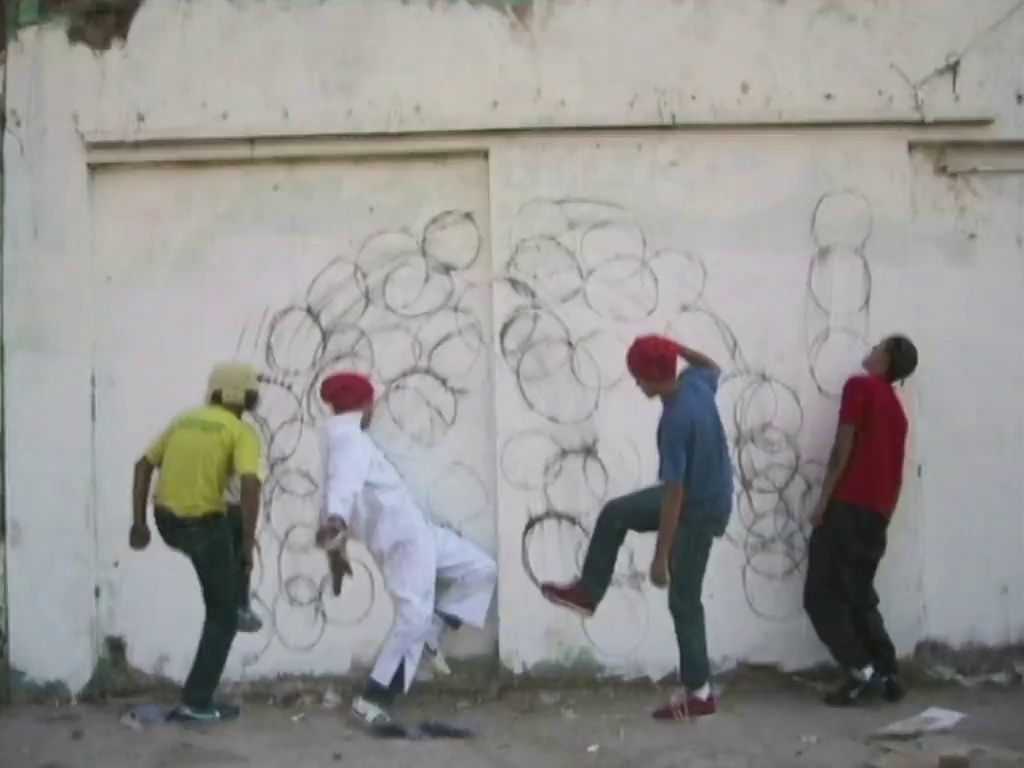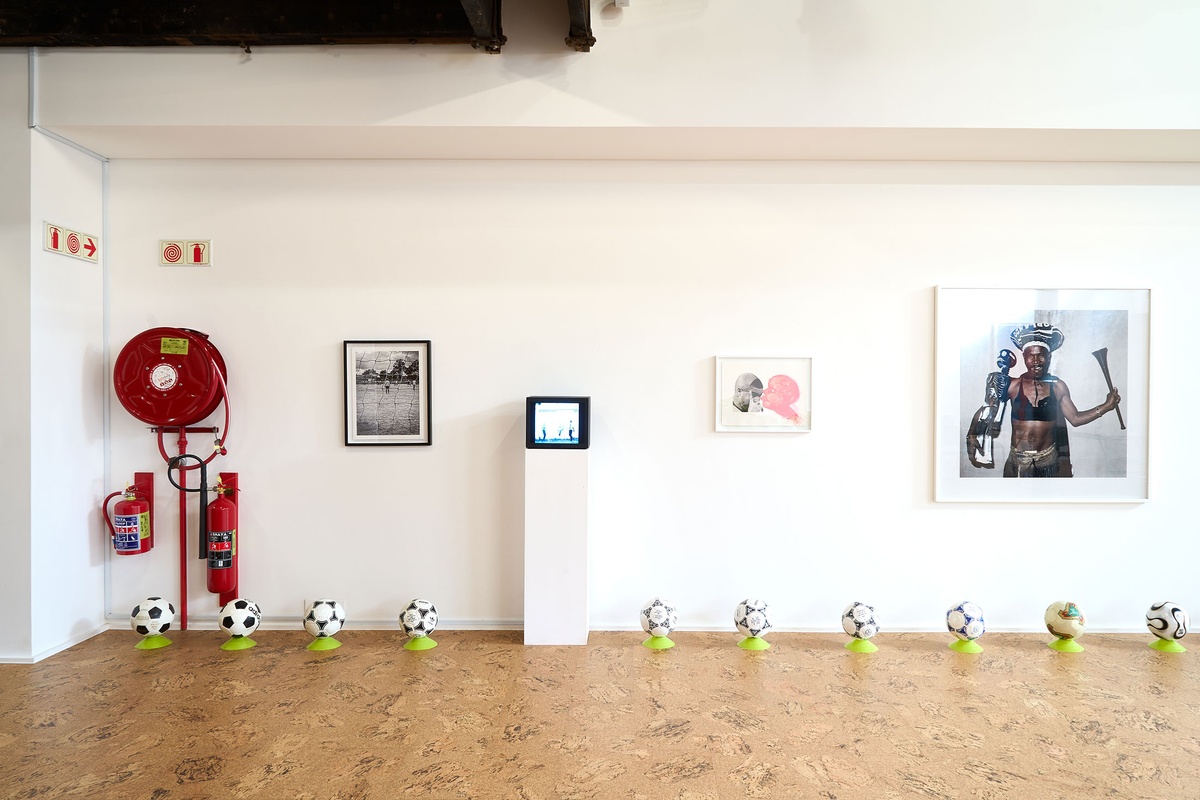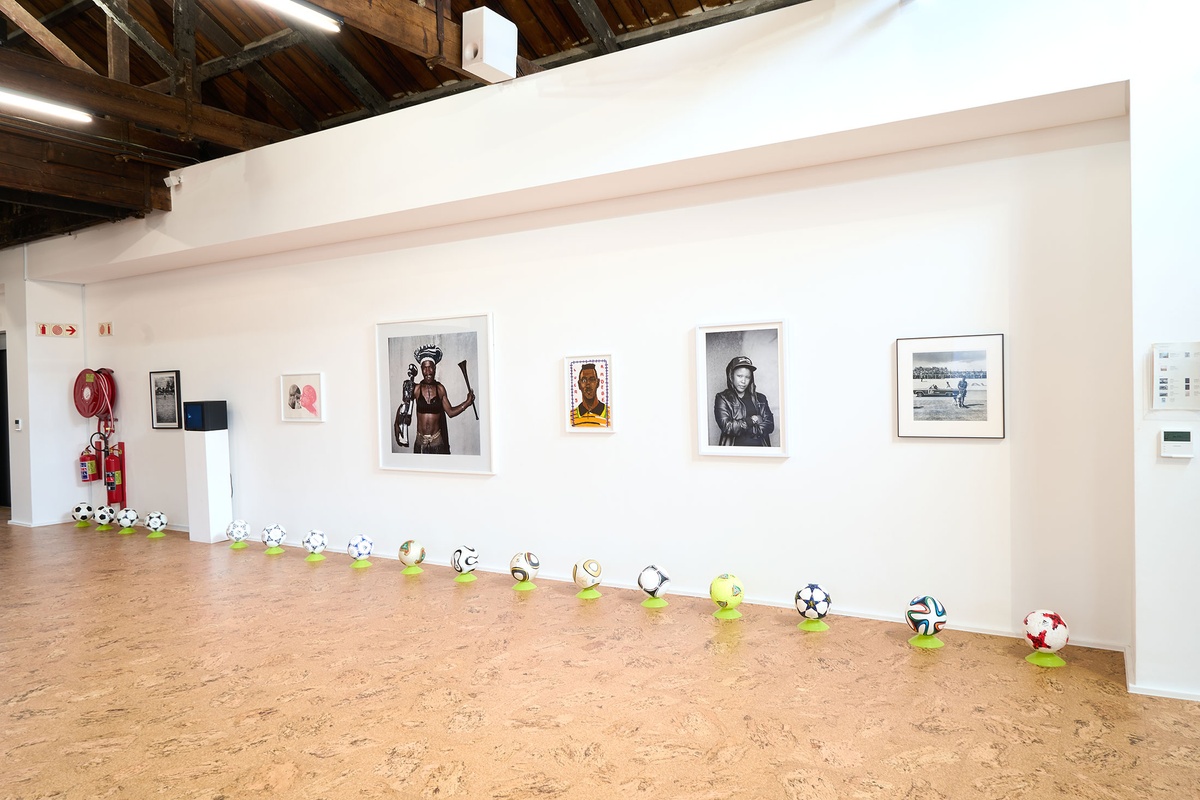Robin Rhode
From Phokeng Tshepo Setai and Alexander Richards, the curators of Exhibition Match '22:
Working primarily on the streets of Johannesburg, Rhode uses walls and sidewalks as the stage for his exuberant, narrative interventions and performances, which are captured in serial photographs and stop-motion videos. Rhode is concerned with youth and street culture, with movement and motion, and with the postcolonial. In Hondjie, four characters kick a ball to each other in a playful manner, playing a version of the game ‘piggy-in-the-middle’.
b.1976, Cape Town
In all Robin Rhode’s work, line is primary – as formal device, as progression, as narrative structure. With the simplest propositions, he gives expression to imagined scenes. His work more often persists as document, the original offering only transitory. In charcoal, chalk and paint, Rhode creates sites of engagement within the city. The sidewalk becomes stage; an actor, always anonymous, appears. A series of photographs are taken, a stop-frame animation is made. Performance, drawing, photograph – the resulting works are all these mediums distilled to image, be it static or moving. The scene is later painted over; the actor departs; the set returns to inner-city wall. Largely produced in Rhode’s native Johannesburg, the works’ political implications are apparent, touching on such issues as urban poverty and violence, street culture and its aspirations. Rhode, however, considers himself more a formalist than social messenger, an artist concerned with mimesis – with art’s illusion – and the many tensions between image and object; the two-dimensional and the three-dimensional, represented and real. This is particularly true of his more recent work, which pairs both colour theory and geometry with the performing body.


